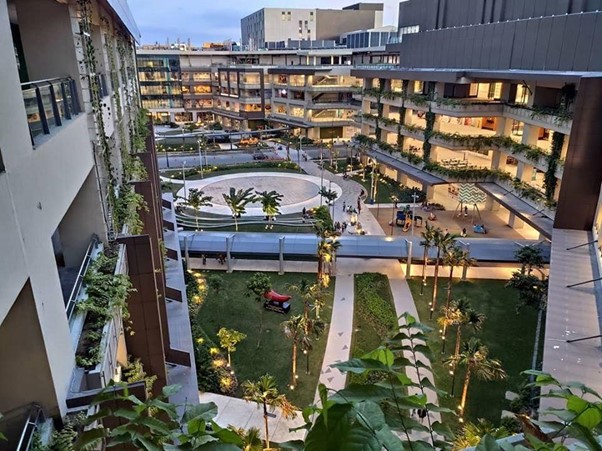The Athenian Philosopher, Plato once said “Never discourage anyone who continually makes progress, no matter how slow.”
The Philippines is a developing country. With its population of 100 million, there will be diversity in terms of ethnicity, culture, and social status. The common Juan Dela Cruz will always keep his wallet intact and use his resources wisely until the next month’s salary. Often, the way for Filipinos to earn more money and support their families is to work overseas. By setting one’s foot on that foreign land, two emotions arise. Unhappiness and Hopefulness. Unhappiness with the reality of how far the country is from becoming a better nation, hopefulness for the thought that one day, the country will get better, every sector will grow, and each Filipino will be able to live comfortably in a life where no one gets hungry.
For the past 30 years, the country has experienced its highs and lows. These challenges also affected the built environment. Fast forward to the present day, the urban state has greatly improved and is now keeping up with the other developed nations while still trying to work past many problems.
In The Commercial Scene
Linear foot traffic and mere boxed-type malls are now a thing of the past. The presence of modern architecture, combined with sustainability concepts and systems, is an entirely new commercial scene for the nation. It is remarkable to see how genius Filipino architects, urban planners, interior designers, and engineers have made designs and built an environment that is truly world-class. Four local malls have even been included in the list of Top 20 Biggest Malls in the World. The presence of various brands, including high-end names also shows that the country is ready for the international market.


The City’s Infrastructure
Good developments in the nation’s infrastructure is still a long shot, but it is improving. The unending road reconstructions, expansions, and diversions are daily scenes in the metro. Recently, the government adopted Colombia’s TransMilenio Bus Rapid Transit System–originally proposed by Bogota’s Mayor, Enrique Peñalosa. The TransMilenio BRT utilizes dedicated bus lanes in the middle of the highways but is completely separated from the flow of the highway and has proper bus stations that are easily accessible to the feeder buses running through the minor roads. In Colombia, this transition to a productive and commuter-friendly road did not just happen overnight. It took the country almost 20 years to completely finish the project and assess the positive and negative effects while continuously enhancing the public’s user experience. Likewise, the Philippines will hopefully continue to develop a system that will be suitable for the local needs of the masses.




Traffic congestion is a major issue here in the country. It is always viewed as a negative trait in our country, however, other foreign sources state that traffic has its own good indications. According to the researchers at the University of Colorado at Denver and Florida Atlantic University, without traffic congestion, it would mean there is something wrong with the city. Quoting Wesley E. Marshall, one of the co-authors of the research study, “Without traffic congestion, there would be less incentive for infill development, living in a location-efficient place, walking, biking, and transit use, ridesharing, innovations in urban freight, etcetera.” Simply enough, traffic congestion (according to this research) encourages people to be more creative in finding easier ways for transport while the government is pushed to continue its endeavor in developing better road traffic solutions. It is also evidence of the country’s progressing economy.
Customs, Changes, and Casting Votes
Despite the diversity of the Filipino people, it is noticeable that the public is now more welcoming to the concept of growth and is more accepting of the possible discomforts that needed to be experienced to give way to development. The old Filipino mindset of, “I was born poor, then I will die poor” is already long obsolete thanks to the older generation who pushed the importance of education as one of the major factors in a country’s development. For change to fully materialize, transformation in the culture should come into play.
Part of the nation’s continuous metamorphosis is the contribution of every Filipino. Aside from knowing and exercising the rights to freedom, education, and life, to be able to cast educated votes plays the major and most influential step a single Filipino can give to the country. As the nation heads towards 2022, the election season, let all Filipinos be responsible citizens. Make sure to register to vote and see to it that you will leave that valuable thumb mark on the ballot.
To Juan Dela Cruz, yes, change maybe is slow but it is coming, and our votes are needed to make it fully happen!



